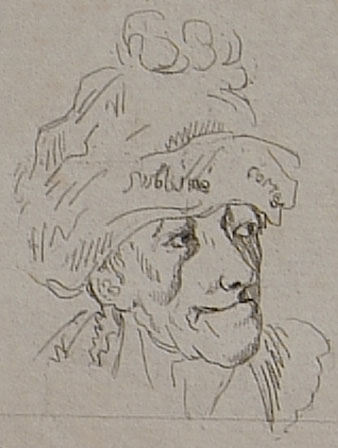Accueil > 6. Actualité de la recherche > Colloques, journées d’étude, séminaires > Colloques... - 2012 > "Voltaire, Frédéric II : éléments d’un jeu de rôles" (Helsinki, 17 mars (...)
 "Voltaire, Frédéric II : éléments d’un jeu de rôles" (Helsinki, 17 mars 2012)
"Voltaire, Frédéric II : éléments d’un jeu de rôles" (Helsinki, 17 mars 2012)
jeudi 26 janvier 2012
Dans le cadre du séminaire sur Frédéric II de Prusse organisé par le Humboldt-Club de Finlande, l’Institut des langues modernes et classiques de l’Université de Jyväskylä et l’Ambassade de France, à Helsinki, le samedi 17 mars 2012,
Olivier Ferret (Université de Lyon 2) présentera une communication sur le thème :
"Voltaire, Frédéric II : éléments d’un jeu de rôles".
English abstract :
Voltaire and Frederick II : a literary role-play
The relationships between Voltaire and Frederick II are still frequently viewed through the lens of Voltaire’s own account of his adventures, which he wrote while returning from Berlin as the King of Prussia’s Chamberlain (1750-1753). This account was of course strongly biased, and even controversial, owing to the fact that Voltaire’s experience at Frederick’s court ended quite badly.
Diverging from some literary constructions of Voltaire’s account - arguments that aim to create a kind of mythology - my presentation poses the following question : is the correspondence between the two men (more than 700 letters written between 1736 and 1778) any more reliable ? Following the vein of Christiane Mervaud’s pioneering work of the correspondence, I would like to scrutinize some of Voltaire and Frederick’s epistolary exchanges in order to reveal that both men had roles to perform in a larger drama, played on the stage of the European Republic of Letters, between a man of letters - this leader of the French philosophes who was seeking recognition at a European level - and the King of one of the most powerful nations, who was hoping to appear as both a philosophe and an enlightened sovereign.
The aim of this paper is not to narrate a few highlights from an evolving forty-year relationship, but to cast doubt on these memorable anecdotes and sayings, made popular by biographies of both men. My hope is to also expose the methodological issues with which scholars are confronted while analyzing texts, whose representations and rhetorical features are regulated by a variety of (sometimes quite twisted) strategies.